Empathways in Kenya Paving the Way to More Empathetic Youth Services
Background
In Kenya, factors like social stigma against youth contraceptive use, poor healthcare access among youth, and the emotional and mental stresses of adolescence mean young people often have limited access to FP/RH care or may not seek family planning and reproductive (FP/RH) services. These factors are often exacerbated by bias on the part of FP service providers, who may be unwilling to acknowledge adolescents’ sexual health needs. Consequently, the adolescent pregnancy rate remains high in Kenya and requires urgent attention.[1]
Recognizing this, Breakthrough ACTION collaborated with the Government of Kenya in 2022 to test the potential of its Empathways tool to address the stigma, bias, and mistrust impeding youth access to contraception and RH services. Empathways can help providers reflect on how their biases affect the quality of FP/RH care they deliver to young clients without feeling judged themselves.
The Empathways Pilot
Between June and September 2022, Breakthrough ACTION coordinated with the Ministry of Health and worked alongside the Homa Bay and Vihiga county departments of health to conduct a five-day training on supplying quality adolescent and youth sexual and reproductive health (AYSRH) services to young clients. The training included 30 health care providers from the two counties who deliver AYSRH services at health facilities.
Training and Implementation
The five-day training focused on Kenya’s National AYSRH Youth Friendly Services curriculum, enhancing providers’ capacity for comprehensive AYSRH management. The pivotal fifth day introduced the Empathways tool, fostering real-time skills application and dialogue. Facilitators distributed Empathways card decks to providers for one-hour practice sessions, where they explored icebreakers, discussion questions, and scenario cards. Then, 15 adolescents joined for practical application, working independently with providers.
Post-training, providers crafted action plans to integrate Empathways into daily engagements. Their commitments included applying techniques with a minimum of two young clients weekly and sharing experiences with health facility management.
Surveys showed that the 30 health care workers provided AYSRH counseling and services to 1,902 (male 397, female 1,505) youth and adolescents since the training.
Provider Impact, Challenges, and Innovative Solutions
Participating providers reported Empathways equipped them with skills to deliver focused counseling to adolescents and youth with empathy, especially on FP/RH. Furthermore, the training introduced them to new approaches and emphasized the significance of understanding adolescents and young clients as individuals. Providers said they learned how to build more meaningful connections with the youth they serve.
Participants reported Empathways helped them communicate with adolescent clients. This enables them to handle sensitive issues like adolescent HIV and sexual and gender-based violence cases. Finally, providers said they could obtain more information from clients during counseling sessions and were better equipped to guide adolescents to make their own decisions about AYSRH services. This means adolescents gain a greater sense of ownership of their health care decisions.
Conclusion
Within Homa Bay and Vihiga counties, Empathways taught providers that connection and empathy between providers and young clients can improve FP/RH service delivery. Providers and national stakeholders saw firsthand how asking simple and clear questions can allow a genuine, personal connection to form between client and provider and ensure providers understand and can meet their clients’ needs.
Written by: Alfayo Wamburi, Social and Behavior Change Advisor, RMNCAH-Family Planning
[1] Obare, F., Odwe, G., & Birungi, H. (2016). Adolescent sexual and reproductive health situation: Insights from the 2014 Kenya Demographic and Health Survey [report]. Knowledge Commons. https://knowledgecommons.popcouncil.org/departments_sbsr-rh/251/

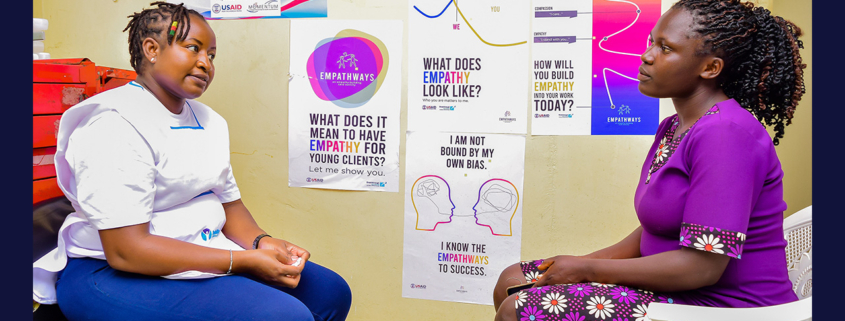 Robert Ouko/Breakthrough ACTION
Robert Ouko/Breakthrough ACTION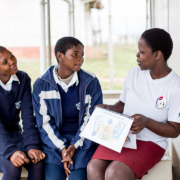 Karin Schermbrucker/USAID/Flickr
Karin Schermbrucker/USAID/Flickr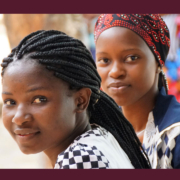 Arturo Sanabria/Photoshare, 2017
Arturo Sanabria/Photoshare, 2017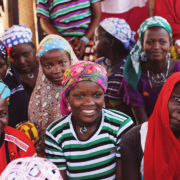 Cambey Mikush/Photoshare
Cambey Mikush/Photoshare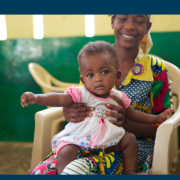 Sara Holbak/VectorWorks/Photoshare
Sara Holbak/VectorWorks/Photoshare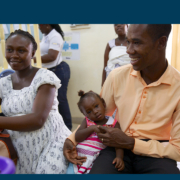 Sarah Hoibak/VectorWorks/Photoshare
Sarah Hoibak/VectorWorks/Photoshare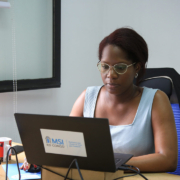 Getty Images/Image of Empowerment
Getty Images/Image of Empowerment